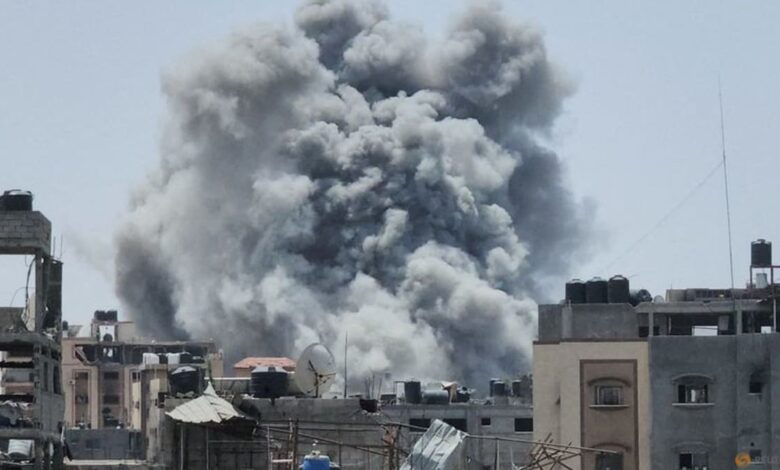Deadly strikes hit Gaza as US envoy visits Israel

AID DELAYS
Israel has imposed a siege on the long-blockaded Gaza Strip, depriving its 2.4 million people of normal access to clean water, food, medicines and fuel, the suffering eased only by sporadic aid shipments by land, air and sea.
“We are living through a humanitarian catastrophe in every sense of the word,” said Rafah resident Rinad Joudeh, 41, decrying “destruction, fear and terror” nearly two weeks into the Israeli incursion into the city.
The head of the UN agency helping Palestinians said that “despite all the calls by the international community not to launch an offensive in Rafah, in reality an offensive started on May 6”.
Since then, “we have again about half of the population of Gaza being on the road forced to flee” for safety once more, though “we keep saying there is absolutely nowhere to go,” UNRWA chief Philippe Lazzarini told reporters in Amman.
“There is absolutely no safe place in the Gaza Strip,” he added.
Joudeh said people heading for a declared “humanitarian zone” in Al-Mawasi were “walking into hell”.
“There is nothing there but suffering, problems and hardship.”
Lazzarini said that because of the fighting, “almost nothing in terms of aid is crossing” into Gaza, raising fears that recent gains made “to prevent a looming famine … might quickly be reversed”.
Truck arrivals have slowed with the Rafah crossing with Egypt closed since Israel launched its operation in the city.
Aid has begun entering via a temporary US-built floating pier, where shipments sent from Cyprus are offloaded for distribution.
The United Arab Emirates said Sunday a shipment of “252 tonnes of humanitarian relief supplies for the people of Gaza was successfully unloaded” after sailing from the Cypriot port of Larnaca.
The UN’s humanitarian chief Martin Griffiths warned that if dire fuel shortages are not alleviated, the “famine which we have talked about for so long, and which is looming, will not be looming anymore. It will be present”.
“Our worry … is that the consequence is going to be really, really hard,” he told AFP in Qatar. “Hard, difficult, and apocalyptic”.


 Offers free spin
Offers free spin